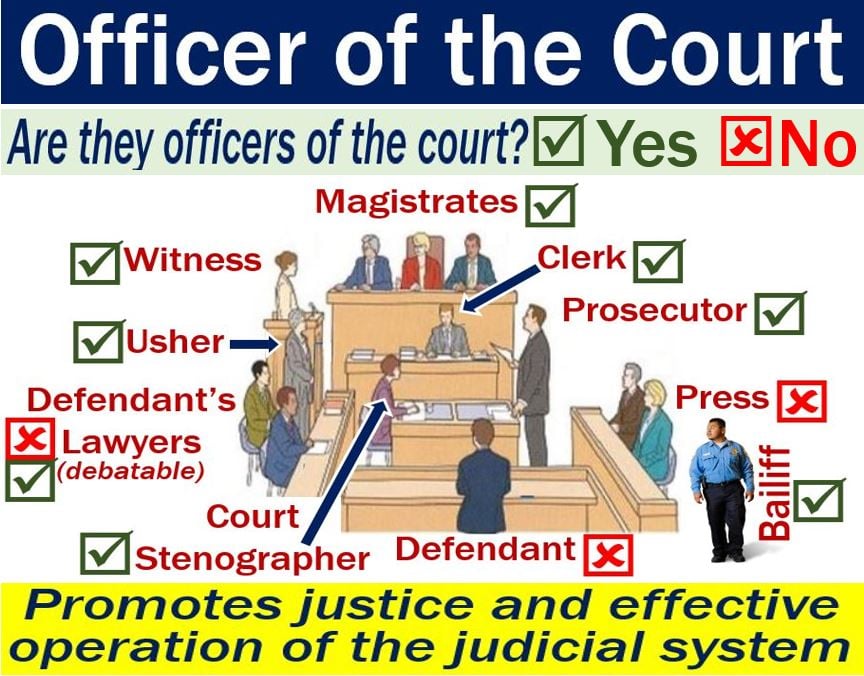An officer of the court is somebody who must promote justice such as a judge, magistrate, clerk, and bailiff. The term also includes a prosecuting attorney. Many American legal experts say that the term includes anybody who is on the court’s payroll.
As an officer of the court, a lawyer has an ethical duty to tell the truth to judges.
Officer of the court vs. court officer
Do not confuse the term with a court officer. A court office is somebody who maintains order in the courtroom. For example, a bailiff is a court officer, but a judge is not, and neither is a clerk.
In British English, a court officer is a sheriff who has the power to carry out arrests, processes, and execute writs.
In the UK, the term ‘court officer’ also refers to a steward, i.e., an overseer of an estate.

Officer of the court – three types
We divide officers of the courts into three functional groups: court, proper, investigation and expertise, and services to the parties.
Court proper
These are, above all, the officers who make decisions that determine the course of justice. In other words, decisions determine justice’s outcome.
Judges and magistrates form part of this functional group. Arbitrators are also in this group. Arbitrators settle disputes in a non-judicial process, i.e., in arbitration.
Investigation and expertise
These ‘accidental witnesses’ are officers of the court thanks to their skills, experience, and equipment. They provide information which helps judges and magistrates make their decisions.
For example, medical examiners, coroners, and other medical professionals form part of the ‘investigation and expertise’ group. We can also include certified appraisers, certified public accountants, and other experts.
Peace officers, constables, sheriffs, and marshals are also in this group.
Service to the parties
This functional group includes interpreters, translators, bail bondsmen, court-appointed special advocates, and process servers.
Officer of the court – private lawyers
The arguments below represent the opinion of many, but not all, legal experts.
An officer of the court is on the court payroll. They receive a paycheck from the taxpayer. For example, a judge is paid by the taxpayer, as is a bailiff. A prosecutor is also an officer of the court.
Private lawyers, however, are no more officers of the court than their clients or the spectators in the courtroom.
Private lawyers get their money from their clients, and not from the court.
